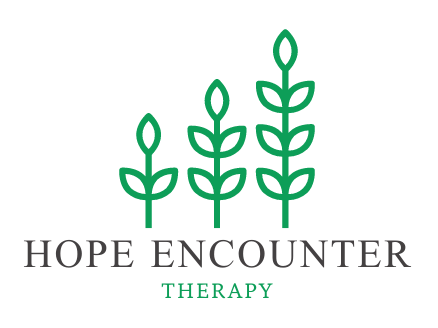When past pain keeps interrupting your present connection.
You’re in a conversation with your partner, and suddenly, without warning, one of you shuts down, explodes in anger, or walks away in silence. It started as a simple disagreement… but now you’re both flooded, confused, and disconnected. Again.
Sound familiar?
For many couples, these patterns don’t come from a lack of love or commitment. They come from unresolved trauma—old wounds that get triggered in the heat of the moment, hijacking the nervous system and driving reactions that don’t always make sense. This is where EMDR therapy in Raleigh, NC can be a game changer—not just for individuals, but for relationships too.
Let’s explore how trauma shows up in relationships, why it can be so hard to talk through, and how EMDR can help couples move from reactivity to repair.

How Trauma Responses Show Up in Relationships
Trauma doesn’t just live in your memories—it lives in your body, your nervous system, and your beliefs about yourself and others. And in relationships, those unhealed wounds often play out in subtle (and not-so-subtle) ways.
Here are a few examples:
- One partner shuts down or gets distant during conflict because growing up, emotional expression wasn’t safe.
- The other becomes overly anxious or reactive when their partner pulls away, fearing abandonment rooted in childhood neglect.
- A harmless tone of voice, a facial expression, or a delay in responding to a text can trigger fight, flight, or freeze—even if no harm is intended.
- Some couples cycle through explosive arguments and painful silences, never quite understanding why things escalate so fast.
What’s happening in these moments isn’t just about the current conversation. The brain is being flooded with reminders of past pain—what EMDR therapists often refer to as “trauma activations.” And until those past wounds are processed, they’ll continue to fuel disconnection in the present.
When Trauma Hijacks Communication and Intimacy
In trauma-activated states, the brain shifts into survival mode. Logical thinking, empathy, and emotional regulation go offline. This is why communication breaks down so easily in conflict, and why couples often say things like:
- “It’s like we’re speaking two different languages.”
- “They just shut down, and I feel abandoned.”
- “I feel like I’m always walking on eggshells.”
- “I know they didn’t mean to hurt me, but it still hurts so much.”
And when this pattern plays out repeatedly, it erodes emotional safety and intimacy. Partners begin to anticipate rejection or blame. Vulnerability feels dangerous. Sex and affection may disappear. The relationship becomes more about protecting yourself than connecting with each other.
This isn’t because the couple is broken. It’s because they’re stuck in reactive cycles shaped by trauma.

How EMDR Helps Couples Break Reactive Cycles
EMDR therapy is a trauma-focused approach that helps the brain reprocess distressing memories and triggers so they no longer hijack your present moment. It’s not talk therapy in the traditional sense—it doesn’t require rehashing every painful detail. Instead, EMDR uses bilateral stimulation (like eye movements, tapping, or sounds) to help the brain “unstick” from old emotional material.
Here’s how EMDR supports couples’ healing from trauma:
-
Individual Healing = Relationship Relief
Each partner works with their own EMDR therapist to process the memories, beliefs, and emotional patterns that fuel reactivity. For example:
- “I’m not good enough.”
- “I’ll always be abandoned.”
- “If I let my guard down, I’ll get hurt.”
As those beliefs are reprocessed, emotional triggers lose their power. One partner may feel more grounded during conflict. The other may no longer feel as threatened by vulnerability. These internal shifts often create immediate external change.
-
EMDR-Informed Couples Therapy
Some therapists integrate EMDR techniques directly into couples sessions, helping partners stay regulated while addressing painful relational patterns. This might include:
- Identifying shared triggers and developing co-regulation strategies
- Processing moments of rupture or emotional injury in a contained way
- Rebuilding trust by addressing attachment wounds collaboratively
Couples can begin to move from reactive to responsive, with more empathy, less blame, and clearer communication.
-
A New Shared Language
One of the powerful benefits of EMDR is that it helps each partner better understand their own internal world. With this insight, couples can communicate more openly about what’s really happening beneath the surface.
Instead of:
“You always overreact.”
You might hear:
“When you don’t respond, it reminds me of when I felt invisible as a kid—and I panic.”
Instead of:
“You’re so cold.”
You might hear:
“When conflict gets heated, I go numb because that’s how I coped growing up.”
These aren’t excuses—they’re bridges. And EMDR helps build them.
A Story of Transformation: From Triggers to Connection
Jason and Maya (names changed) came to therapy after years of cycling through the same arguments. Maya often felt dismissed and panicked when Jason shut down during conflict. Jason felt overwhelmed by Maya’s intensity and retreated to avoid saying something he’d regret.
Through EMDR, Maya worked on childhood memories of not being heard or taken seriously. Jason processed early experiences of being punished for expressing emotion. As each partner found more calm and clarity in themselves, their dynamic began to shift.
They learned to pause during conflict, name their triggers, and support each other with compassion. Over time, they reported feeling “closer than ever”—not because conflict disappeared, but because they learned how to navigate it together.
You Deserve a Relationship That Heals, Not Hurts
If trauma is interfering with your ability to feel safe, seen, and connected in your relationship, you’re not alone—and you’re not beyond repair. EMDR offers a path forward: not by ignoring the past, but by gently helping your nervous system stop reliving it. When you and your partner each do your healing work, the relationship can become a place of repair, not re-wounding.
Ready to get started? At Hope Encounter Therapy, we offer EMDR therapy and trauma-informed couples intensives designed to help you move beyond the stuck patterns and into deeper connection.
Healing is possible—for you, and for your relationship.

Ready to Heal Together? Find Support Through EMDR Therapy in Raleigh, NC
If emotional triggers and past trauma are straining your relationship, you don’t have to navigate the healing process alone. At Hope Encounter Therapy, we specialize in helping couples reconnect, rebuild trust, and create a healthier future together. EMDR therapy in Raleigh, NC offers a powerful path to move through pain and rediscover connection. Follow these three simple steps to get started:
- Schedule a consultation to explore how EMDR can support your relationship.
- Reconnect with your partner in a safe, supportive therapeutic space with an EMDR therapist.
- Begin your healing journey with a team that understands the impact of trauma on couples.
Other Services Offered at Hope Encounter Therapy
At Hope Encounter Therapy, we’re dedicated to supporting both individuals and couples as they move toward healing and deeper connection. We often use EMDR Therapy to help couples reconnect and rebuild trust after trauma but we also understand that healing looks different for everyone. That’s why we offer a range of approaches, including Cognitive Processing Therapy (CPT), Somatic Experiencing, and Narrative Therapy, to meet your unique needs. Don’t forget to check out our blog, where you’ll find helpful resources, reflections, and guidance to support your mental wellness.


